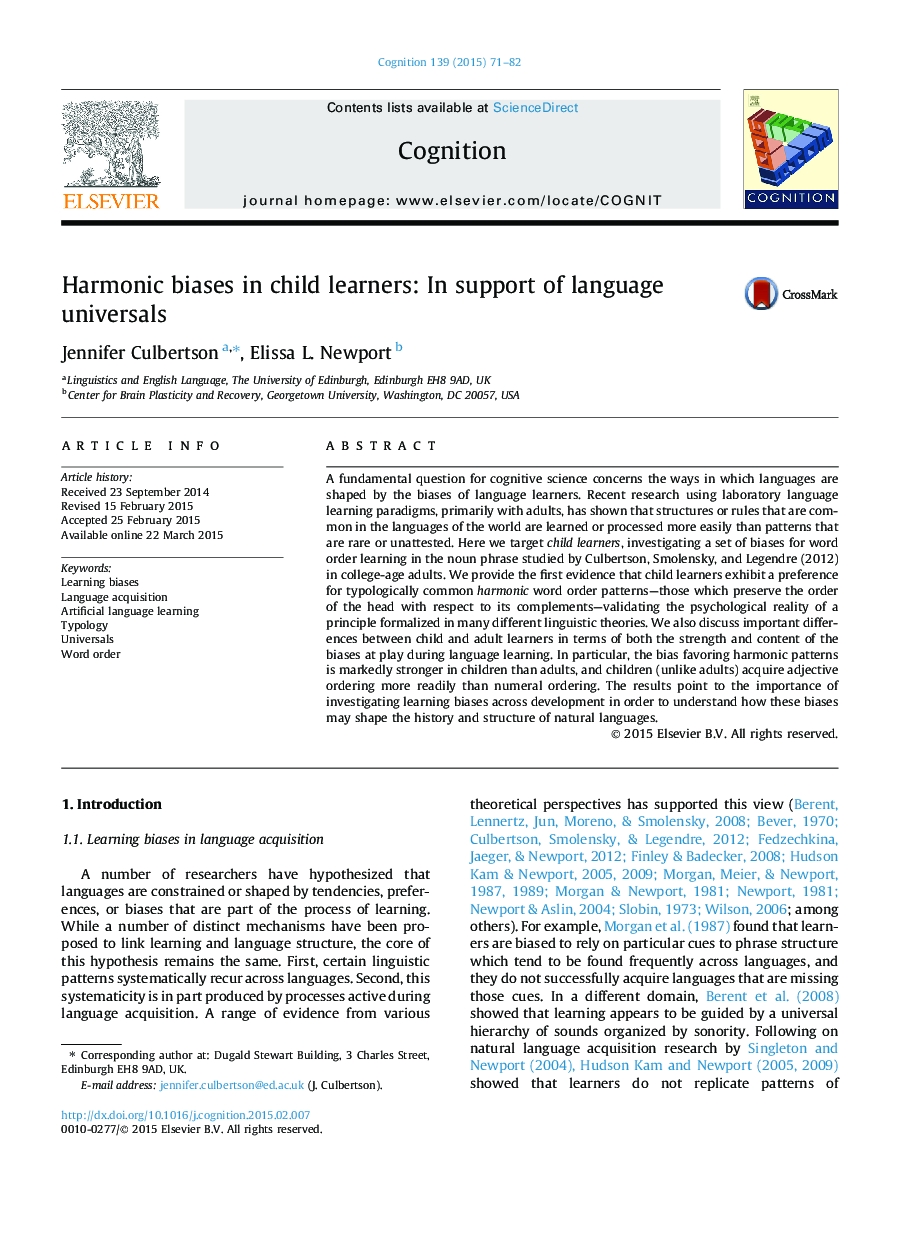| کد مقاله | کد نشریه | سال انتشار | مقاله انگلیسی | نسخه تمام متن |
|---|---|---|---|---|
| 7287094 | 1474128 | 2015 | 12 صفحه PDF | دانلود رایگان |
عنوان انگلیسی مقاله ISI
Harmonic biases in child learners: In support of language universals
ترجمه فارسی عنوان
تعصبات هارمونی در زبان آموزان کودک: در حمایت از زبان های جهانی
دانلود مقاله + سفارش ترجمه
دانلود مقاله ISI انگلیسی
رایگان برای ایرانیان
کلمات کلیدی
موضوعات مرتبط
علوم زیستی و بیوفناوری
علم عصب شناسی
علوم اعصاب شناختی
چکیده انگلیسی
A fundamental question for cognitive science concerns the ways in which languages are shaped by the biases of language learners. Recent research using laboratory language learning paradigms, primarily with adults, has shown that structures or rules that are common in the languages of the world are learned or processed more easily than patterns that are rare or unattested. Here we target child learners, investigating a set of biases for word order learning in the noun phrase studied by Culbertson, Smolensky, and Legendre (2012) in college-age adults. We provide the first evidence that child learners exhibit a preference for typologically common harmonic word order patterns-those which preserve the order of the head with respect to its complements-validating the psychological reality of a principle formalized in many different linguistic theories. We also discuss important differences between child and adult learners in terms of both the strength and content of the biases at play during language learning. In particular, the bias favoring harmonic patterns is markedly stronger in children than adults, and children (unlike adults) acquire adjective ordering more readily than numeral ordering. The results point to the importance of investigating learning biases across development in order to understand how these biases may shape the history and structure of natural languages.
ناشر
Database: Elsevier - ScienceDirect (ساینس دایرکت)
Journal: Cognition - Volume 139, June 2015, Pages 71-82
Journal: Cognition - Volume 139, June 2015, Pages 71-82
نویسندگان
Jennifer Culbertson, Elissa L. Newport,
